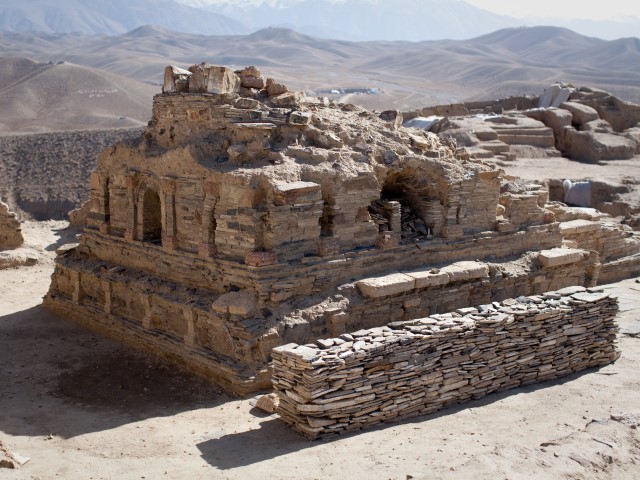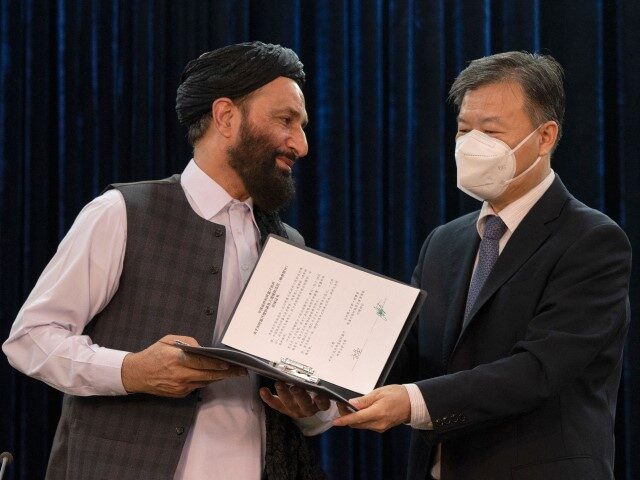The Taliban’s “acting” Minister of Mines and Petroleum, Shahabuddin Delawar, on Thursday signed a deal with China’s Xinjiang Central Asia Petroleum and Gas Co. (CAPEIC) to exploit the Amu Darya oil field in northern Afghanistan.
Delawar said at the signing ceremony that CPEIC’s project to extract oil from the 4500-square-kilometer region covered by the contract will create 3,000 jobs for Afghans. Delawar said the Chinese company agreed to process the oil in Afghanistan instead of shipping it overseas for refining.
The Taliban regime is set to receive 20 percent of the revenue from the project at the outset, scaling up to 75 percent at an unspecified point in the future.
The Taliban’s “acting” Deputy Prime Minister Mullah Baradar said on Thursday that another, unnamed Chinese company has been extracting oil from the Amu Darya fields since the Taliban junta seized power in August 2021. The Taliban refers to its all-male, all-extremist gaggle of ruling ministers as “acting” to preserve the fiction that it will hold free and fair elections someday.
“The Amu Darya oil contract is an important project between China and Afghanistan,” China’s ambassador to Afghanistan, Wang Yu, declared at Thursday’s news conference.
Prior to President Joe Biden’s badly bungled withdrawal of American forces from Afghanistan in 2021, a Chinese state-owned enterprise called China National Petroleum Corp. (CNPC) had a contract with the United States-backed elected government of Afghanistan to extract oil from Amu Darya. When CNPC signed its contract with Kabul in 2012, the Amu Darya basin was estimated to hold 87 million barrels of crude oil.
Xinjiang Central Asia Petroleum and Gas Co. was formed in 2000 as an offshoot of the restructured CNPC.
Mullah Baradar also announced a Chinese state-owned company is negotiating with the Taliban to take over the operation of a copper mine in Afghanistan’s Logar province. This was presumably a reference to Mes Ayank, which is believed to be the second-largest copper deposit in the world.
Chinese state-owned companies Jiangxi Copper and Metallurgical Corporation of China (MCC) signed a $2.8 billion deal with the government of former Afghan President Ashraf Ghani in 2007 to work the Mes Ayank deposit for 30 years. The consortium formed by these companies demanded revisions to the contract after the Taliban took over.
China is hungry for Afghanistan’s copper but has encountered difficulties developing Mes Ayank, ranging from a shortage of coal for the huge power plant required by the project to security problems caused by insurgents – including the Taliban itself, before the takeover – and the inconvenient presence of an ancient Buddhist temple.

A recently excavated Buddhist stupa, or shrine, at Mes Ainak, 35km south of Kabul, Afghanistan. Photo taken November 14, 2011. (Jerome Starkey via Flickr)
China is one of the Taliban regime’s few major international allies, although even China has shied away from formally recognizing the junta as Afghanistan’s legitimate government. Beijing’s rapacious appetite for Afghanistan’s natural resources inspired it to view the Taliban takeover as a tremendous business opportunity, and it also wants to cultivate influence with the junta to keep the Afghan border region from becoming a security threat to China.
The Taliban desperately needs foreign investment, but its embrace of terrorism and horrific human rights abuses is keeping most investors at bay. The Mes Ayank copper mine was one of China’s first big resource-harvesting investments abroad a decade ago, and today Afghanistan is one of the first great tests of China’s ruthless new world order, in which regimes can perpetrate unlimited atrocities without repercussions, so long as Beijing gets what it wants.

COMMENTS
Please let us know if you're having issues with commenting.